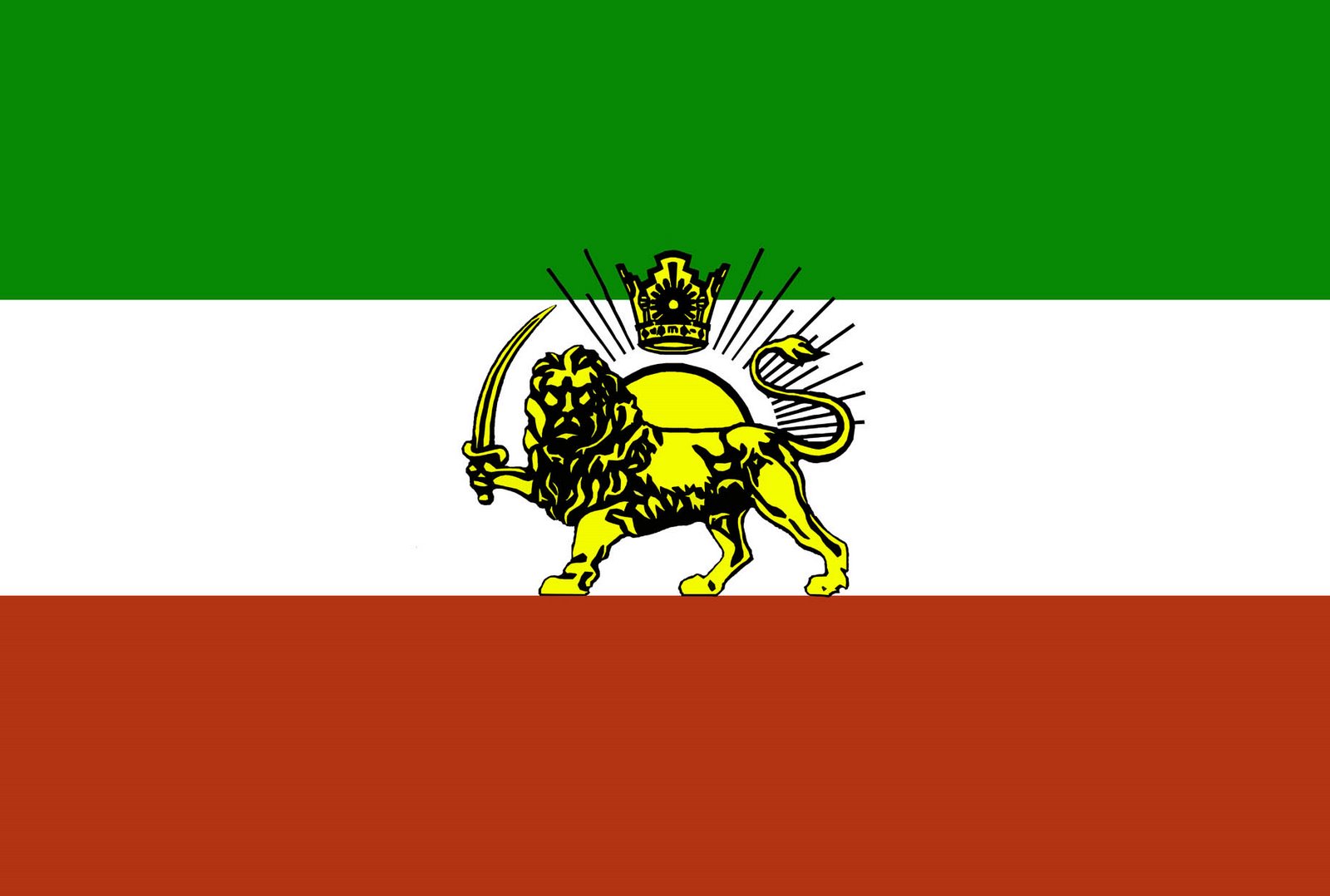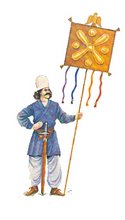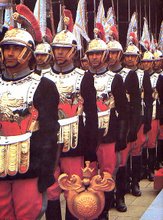
"Chaharshanbe Suri (LINK 1; LINK 2) is the ancient Iranian festival dating at least back to 1700 BCE of the early Zoroastrian era. The festival of fire is a prelude to the ancient Norouz festival, which marks the arrival of spring and revival of nature. Chahrshanbeh Suri, is celebrated the night before the last Wednesday of the year. The word Chahar Shanbeh means Wednesday and Suri is red. The celebration usually starts in the evening. On this occasion people make bon-fires on the streets and jump over them. The young use much firework before and during the Chaharshanbe Suri (literally: Red Wednesday).
The tradition includes people going into the streets and alleys to make fires, and jump over them while singing the traditional song Sorkhi-ye to az man; Zardi-ye man az to. The literal translation is, Your fiery red color is mine and my sickly yellow paleness is yours. This is a purification rite and 'suri' itself means red and fiery. Loosely translated, this means you want the fire to take your paleness, sickness and problems and in turn give you redness, warmth and energy.
Every year Iranians celebrate their pre-Islamic holidays with pride despite the repressive measures the Islamic regime takes to ban these holidays. For many years now this Iranian festival has been used as a battleground between the people and the Islamic Republic with institutions and properties of the Islamic Republic being set on fire. Portraits of the "Supreme Terrorist Ali Khameini" and "Mullah Khatami" have been burned in the past as can be seen in the photos below.
"Chaharshanbe Soori" is fastly approaching and within 1-2 days the regime will witness yet another grand resistance against the backward ideology/culture which they represent!




























2 comments:
My friend sent me a message telling that in Teheran in Gheytarie and in 3 other parts of the city some guys taught a lesson to the Bassijis by some hand made grenades.
“The Persians teach their sons, between the ages of five and twenty, only three things: to ride a horse, use the bow, and speak the truth” (Herodotus)
Some proof of Greek admiration towards the true native Persian way of living, taken from Herodotus and his fine, yet at times exagerated "Histories".
V.
Post a Comment